Leyla Mustafayeva
On September 18, 2014, Khanum Jeyranova, 30, was found after she hung herself in her father’s house in Garachop village ( village is located next to Lambalo) in the Sagarejo region of Georgia. Two days earlier, her husband’s relatives accused her of adultery and forced her to go around the village barefoot. During this process she was physically and verbally abused by young men.
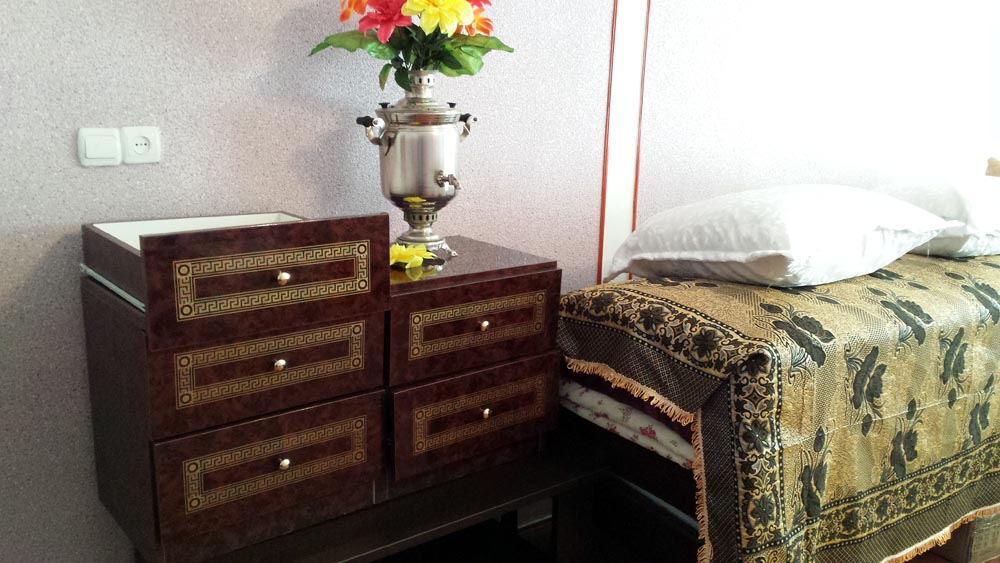
Haji Hasanov had kidnapped Khanum Jeyranova when she was 16. After they got married they had two children -- Ilknur and Yolchu. The only family income came from raising cattle breeding, and the husband mainly lived in spring pastures in the mountains and in winter camps. Sometimes Haji visited his wife and children in the village, where they lived so the children could go to school. The rhythm of their life and marriage ended in tragedy after 14 years.
On September 15, 2014, her husband’s relatives saw her in the car of Azalkhan Ismailov, who is from Kazlar village. That is why she was beaten severely in the street by her husband’s cousins.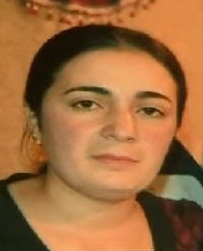
According to her father Zahid Jeyranov, she was abused by Telman Hasanov, Ayvaz Hasanov, Novruz Hasanov, Elchin Deykhanov and Afgan Huseynov. Father said both men- he and Khanim’s husband were away at a winter camp. “Telman Hasanov arranged it. He called to the others and together with them abused Khanum. None of them are involved in the investigation. They have disappeared.”
Zahid Jeiranov is not satisfied with the police investigation into the mob action. He has applied to the Chief Prosecutor’s office and the Parliament of Georgia, with no results.
He complained that those men were not the persons who should punish his daughter: ”Punishment was her father’s and husband’s duty,” he said, adding that if the legal system doesn't punish those men, he will do it with his own rules.
The Lambalo police office refused to give a detailed explanation regarding the case. They said the investigation is continuing.
Khanum’s mother, Yetar Akhmedova, said that the chairman of the local executive authority Mahmud Aliyev took her daughter to his house to protect her after her husband's relatives’ punishment. Akhmedova said that she brought her home the next day.
Akhmedova said she had a short conversation with daughter some hours before her death: “ I asked her why she did it? She answered that she had felt numb and did not know the reason. I poured tea for her, but she did not drink. I went to the spring to bring water. When I came home, she was dead. She had poured the tea I had given her on the ground.”
Akhmedova said that a few days after the death, her dowry was brought back to their house. The children are staying with them.
Haji Hasanov is in custody because of the complaint of Afgan Deykhanov, who had been among the men in the crowd abusing Hasanov's wife. On December 14, Hasanov shot and wounded Deikhanov in the leg after an argument about his late wife’s behavior.
A criminal case was launched against Hasanov. Five months after the shooting, the two men reached a compromise and Deikhanov withdrew his complaint. But Hasanov is still in jail.
On May 1, 2015, during a hearing in Signaghi city court, the judge declared that the case was being delayed by the preparation of a truce agreement. On May 25, the two sides signed an agreement.
According to Hasanov’s lawyer Mzia Sichinava, public prosecutor Zurab Baxetelidze has asked the judge to sentence the accused to five years in prison. “The court hearing is still on,” Sichinava said.
The lynching of this woman is characteristic of Islamic countries ruled by Sharia rules. Georgia is a secular country where religion is separate from state policy and the country is ruled under a Constitution.
One of the imams in the village, Jabrail Mirzayev, said that women are valued very much in Islam: “The prophet has a hadis (statement) which says that heaven is under a mother's hand. Before Mohammed became a prophet, daughter babies were buried. Mohammed became a prophet and prohibited such things.
"This death reminded us of the events which were performed prior to Islam. Islam does not support such behavior. It is haram (forbidden by Islam).”
In an October 16, 2014 interview with the newspaper Kviris Palitra, Hasanov spoke about his relationship with his late wife.
“We lived together for 14 years. We worked together. She always helped me. When this happened I was watching the sheep. My cousins caught her in somebody’s car. That boy was from Kazlar. At first they beat heron the spot; then they took her by car to the village center and publicly beat her there. From the center she walked home bare-footed.
"Khanum was an honest person. Before committing suicide, she asked to see her children but they were with my brother… They keep asking me where their mother is. For me, life has no meaning. I have neither a mother nor a father. My wife hung herself because of shame. I’ll sell all my cattle and leave this place. My wife didn’t deserve all this.”
When asked what he would have done if he had found out his wife had betrayed him, he said: “I wouldn’t kill her, but I’d force her out of the house.
"She was 16 years old when I kidnapped her. For 14 years we lived a happy life together, but this is how our life has ended.”
Alim Elbrus
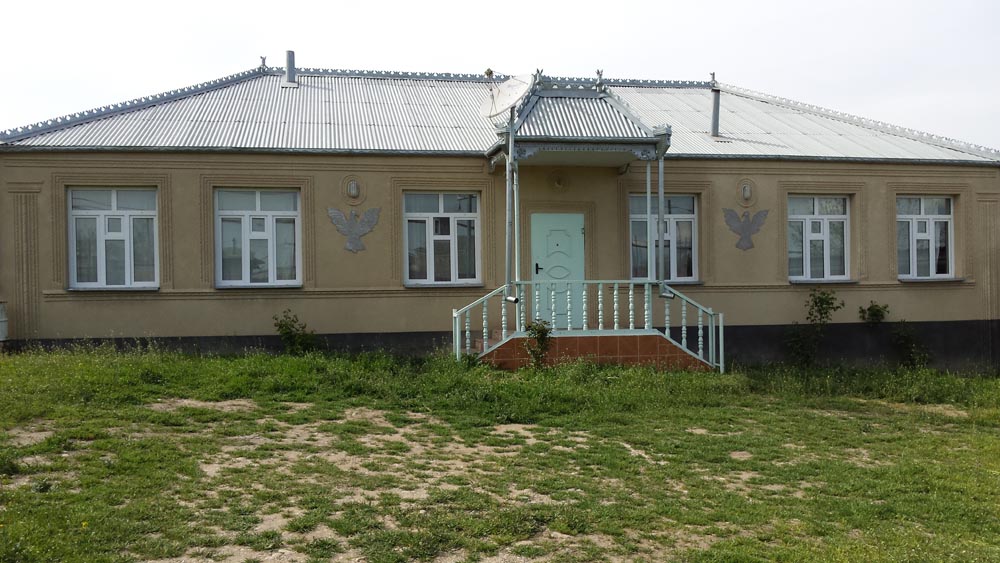
A lot of people suffer after a suicide from this casualty. Perhaps those who suffer most are the children. When Khanum Jeyranova commited suicide at age 30 in Lambalo village in September, 2014, she left two children still in school, Ilknur and Yolchu.
The issue is not only their mother’s suicide, but also seeing her being beaten in front of their own eyes by several men a few days before the suicide. There is little official information about this case because the investigation is continuing.
When you talk to the children now, they speak like older people, as if their difficulties have made them grow up too fast.
Because no villagers will confirm that they have witnessed this beating, the victim's father wants her children to talk as witnesses, and for lawyers to discuss any legal problems.
Ilknur remembers her mother’s beating this way: “I was on my way back to home from school. I saw how they were beating my mom. Several men – Elchin, Afqan, Novruz, Eyvaz, Telman and one whom I have forgotten -- were beating my mother. Her dress had been torn. They were hitting the back of her neck. I have witnessed all of this. She was brought home. I also came home. I gave water to my mother. My brother also had returned from school. When I wanted to go out and call somebody for help, Elchin (a family member) wanted to hit me, too, but he didn't. We were not allowed to go out the whole day.”
Yolchu also confirmed his mother was beaten by the men named by his sister. “One of the men told me that my mother was being beaten. I ran home. Her dress had been torn. She was weak.”
The children’s father is in custody because he shot one of the men who assaulted His court case is continuing.
Both children are unaware of their father’s arrest. Their grandfather has told them that their father has gone to Turkey for business and will return after finishing his job.
The children have not received psychological treatment. Their grandfather said that, he has no information about how to get this treatment.
He said that the state has allocated 100 lari for financial aid. “But I do not need this money," he said. "I demand a true investigation of my daughter’s death.”
Ilknur has graduated third grade. Yolchu will be in the sixth grade in September. Both were good students until her mother’s death. Ilknur said that she had all grades of A and B. Yolchu’s grades were 8 and 9 out of 10.
Accoring to Ilknur's teacher Zohra Kheyirkhabarova , who has been teaching 15 years at the Lambalo village school, the two children were psychologically depressed after their mother’s death.
“Their mother was supervising the children’s education," Kheyirkhabarova said. "Despite being an uneducated woman, she wanted her children to study well. But after her mother’s death, Ilknur's grades dropped. Teachers and schoolchildren treated them kindly. But they were psychologically depressed.”
They did not finish the school year. Now under the custody of their grandfather, they moved to a winter shepherd camp with him at the end of April. For being busy in cattle breeding they can not live in the village permanently. Now they are with him in summer pastures in the mountains.
The children were interviewed just before they left for the mountains. Both say they wish to continue their education. Their grandfather says he is tryind to decide whether to send them to school in Rustavi or in Tbilisi.
Ilknur has good memories about her mother. She said that her mother always helped them with education. And she said she is always missing her mother.
The future for the children is still unsure. Nobody can predict what will happen to them. The only fact which is clear is that they had a serious psychological shock.
Nurana Rahimova
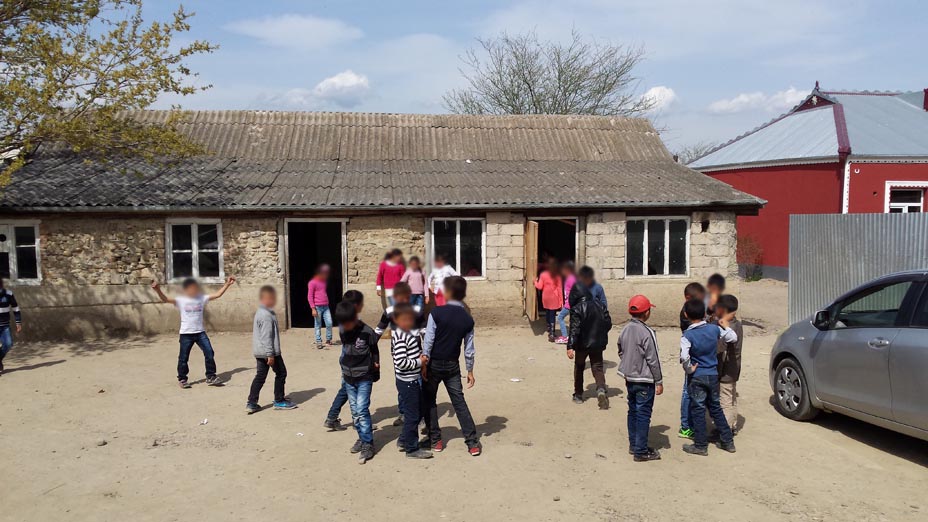
Khanum Jeyranova was a citizen of Georgia of Azerbaijan nationality. She was born and lived her whole life in the Kakheti region. On September 18, 2014, she committed suicide by hanging. She was 30 years old, and a victim of honor killing.
She lived in an old village where most people don't speak the Georgian language. A visit to the village showed that it is a closed society, and that many people have never left the village. They keep the same behaviors and lifestyles, and maintaining traditions is vital, even if that means some people become victims as a result. Khanum's death shows that tradition is more important than human life, and that honor killing is acceptable in this village.
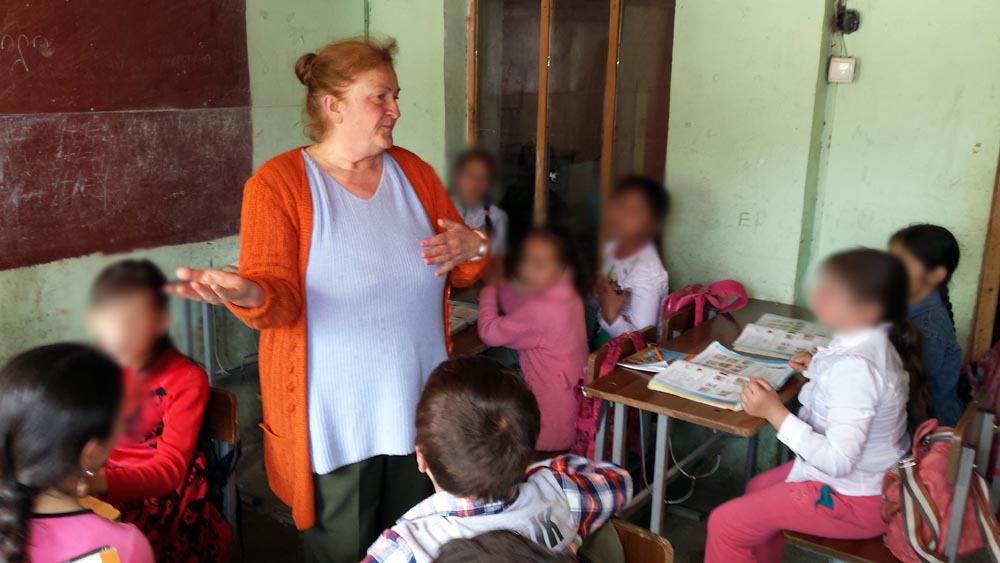 An honor killing is a homicide of a person by their own family members, due to the perpetrators' belief that the victim has brought shame or dishonor upon the family, or has violated the principles of a community or a religion, usually for reasons such as refusing to enter an arranged marriage, being in a relationship that is disapproved by their family, having sex outside marriage, becoming the victim of rape, dressing in ways which are deemed inappropriate, or engaging in homosexual relations.
An honor killing is a homicide of a person by their own family members, due to the perpetrators' belief that the victim has brought shame or dishonor upon the family, or has violated the principles of a community or a religion, usually for reasons such as refusing to enter an arranged marriage, being in a relationship that is disapproved by their family, having sex outside marriage, becoming the victim of rape, dressing in ways which are deemed inappropriate, or engaging in homosexual relations.
In many cultures where honor is a central value, men are active agents of that honor, while the only effect that women can have on honor is to destroy it. Once honor is destroyed by the woman, there is a need for immediate revenge to restore it, in order for the family to avoid losing face in the community. An Amnesty International statement notes:
“The regime of honor is unforgiving: women on whom suspicion has fallen are not given an opportunity to defend themselves, and family members have no socially acceptable alternative but to remove the stain on their honor by attacking the woman”.
This is an unwritten rule among many Azerbaijan people. Betrayal by a women is inexcusable behavior. The woman undoubtedly will be punished by family members. If this happens in a city, the punishment might be divorce and being cut off from all relationships forever. But in villages, punishment is often more severe. It can be verbal abuse, humiliation, beatings, incitement to suicide, even killing. All of it is meant to cleanse the stain of dishonor.
Khanum Jeyranova was accused of betrayal. The relatives of her husband swore at her and beat her in the center of Lambalo village. This was not just debasing her honor and dignity. Because it happened in the center of the village, everyone knew about her behavior. As a tradition, after that day no one would to talk to her. She could never go to a market, never go to a parents meeting at school, never go to a wedding, even never go to a cemetery. Life for her ended the day of the beating in the center of the village.
Neighbors don't want to discuss what happened. Even two doors away from her father's house, a neighbor said her never heard about her death. They said they knew nothing about her beating.
People are ignoring her even after death. She had one chance to clean her honor -- suicide. Villagers believe that if she commits suicide, it means she understands her mistake and she feels remorse. According to unwritten rules of villages, if a woman in this situation does not commit suicide, villagers would think she feels no regret and is proud for her behavior. According to tradition, if she don’t want to commit suicide, it means that punishment of her is the duty of a husband, brother, father, even a son.
That’s why Khanum saw no way to survive. She committed suicide.
There is no proof of betrayal of Khanum, only the words of relatives. Her father and two children gave the names of those who beat her. But none one of them has been punished by the law.
According to Article 115 of the Criminal Code of Georgia: Bringing to the Point of Suicide.
"Bringing to the point of suicide or attempted suicide by intimidation or violent treatment or by systematically abusing the honor or dignity of the victim, shall be punishable by up to three years of restriction of freedom or by imprisonment up to five years in length."
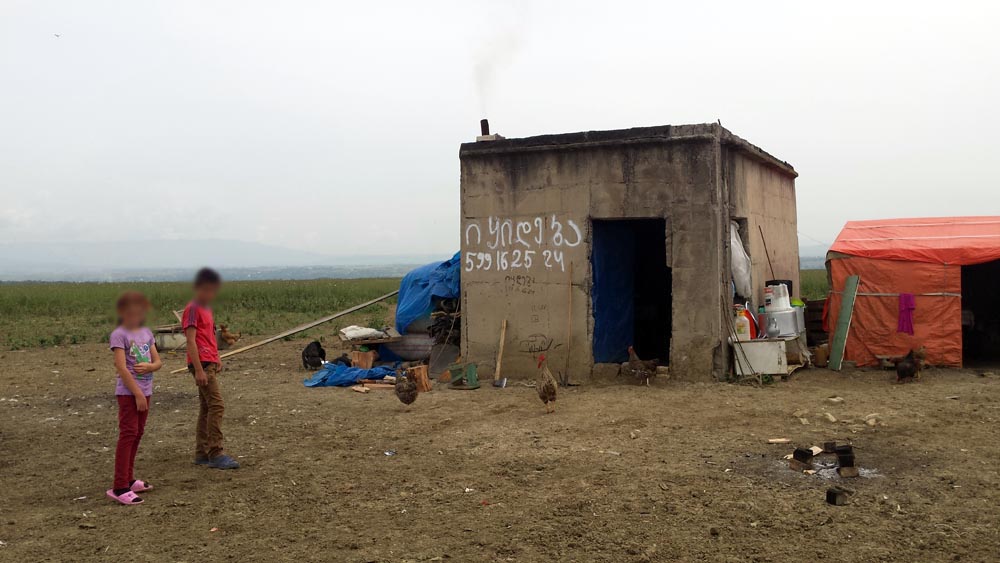
A 2002 UN report by the Special Rapporteur concerning cultural practices in families that are violent towards women (E/CN.4/2002/83) indicated that honor killings had been reported in Egypt, Jordan, Lebanon, Morocco, Pakistan, Syria, Turkey, Yemen, and other Mediterranean and Persian Gulf countries, and that they had also taken place in countries such as France, Germany and the United Kingdom, within migrant communities.
In addition, the United Nations Commission on Human Rights gathered reports from several countries. Based on only those countries that submitted reports, it was shown that honor killings have occurred in Bangladesh, Great Britain, Brazil, Ecuador, Egypt, India, Israel, Italy, Jordan, Pakistan, Morocco, Sweden, Turkey and Uganda.
According to Widney Brown, advocacy director for Human Rights Watch, the practice of honor killing "goes across cultures and across religions."